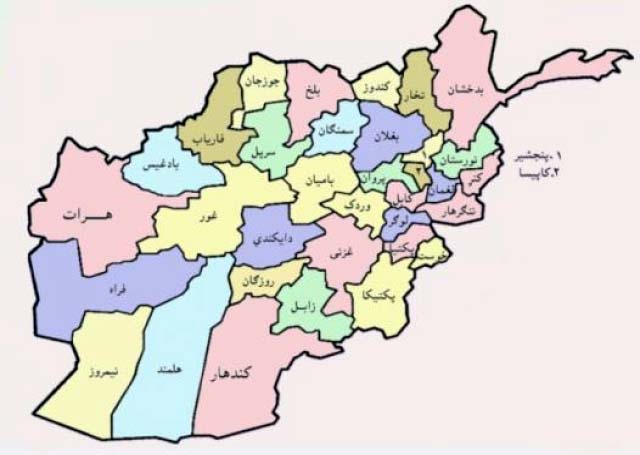KABUL - More than 160 high-ranking government officials in 26 provinces of the country have been holding powerful positions for the past 10 years, reveals a study conducted by Pajhwok Afghan News.
At least 162 well-connected individuals have been in the cushy jobs for a decade, or even longer, in governor’s offices, municipalities, directorates, custom and revenue departments. (For further details, click the link).
Pajhwok reporters may have failed to collect complete information in this regard and as such the number of government servants working unchanged in the same positions for a decade could be even higher.
Despite hectic efforts by its correspondents, this news agency could not find lists of such government officials in Nangarhar, Nuristan, Panjsher, Laghman Baghlan and Uruzgan provinces.
Sharifullah Salehi, recruitment head at the Independent Administrative Reform and Civil Services Commission (IARCSC), said there were no limits to the tenures of governors and district chiefs. No law exists in this regard.
He believed if a specific tenure was defined for a particular post, its holder would not be able to work with a sense of security and comfort. As a consequence, his/her performance will be badly affected.
Salehi saw no problem with positions of authority being held for an inordinately long time by efficient, innovative and committed people, who were not tainted by corruption and avoided the misuse of resources.
Government slots fall vacant when incumbent officer resigns or fail to secure good marks in periodical evaluations. Similarly, officers can be fired in case of absence for more than 20 days without information, indictment or imprisonment on criminal charges.
Under the country’s basic law, the president, his deputies and Wolesi Jirga members have a five-year tenure. Similarly, Meshrano Jirga members also serve for the lengths of time specified in the constitution.
Afghanistan Independent Human Rights Commission (AIHRC) Chairperson Seema Samar has been in office since 2003, when the watchdog was created during Hamid Karzai’s presidency.
Rafiullah Baidar, AIHRC spokesman, said the commission’s affair were being run by its eight members nominated by the president for a five years period. He insisted there was no legal issue with Samar continuing as chairperson.
Azimullah Rahmanyar, whohas been the director of information and cultural in northern Jawzjan province for the past 10 years, said there could be multiple reasons for an individual staying in the same position for a long time.
He listed competence, commitment, efficiency and good management were the principal demands of high positions. Holding a specific post is helpful for the entire department, according to him. Rahmanyar made clear he did not have props in the government and counted only on hard work and dedication.
But some people are dead-set against the occupation of a high post by one individual for decades. Abdul Qadir Misbah, a civil society activist, called it a dangerous culture that facilitated corruption and venality.
He said periodical reshuffles of government servants were a sign of good governance and an improved system. An individual should not be allowed to work in the same position for an unreasonably long time, he suggested.
However, the director of justice in southern Helmand province said that he has been working on his position for the past five years.
“The justice department was initiated in 2008 when late Mohammad Ibrahim Ghafoori was the director of the department. After his death in 2010, I was qualified for the position through open competition conducted by IARCSC on Nov, 11. 2010 and officially joined the office in April, 2011, “he said. (Pajhwok)

